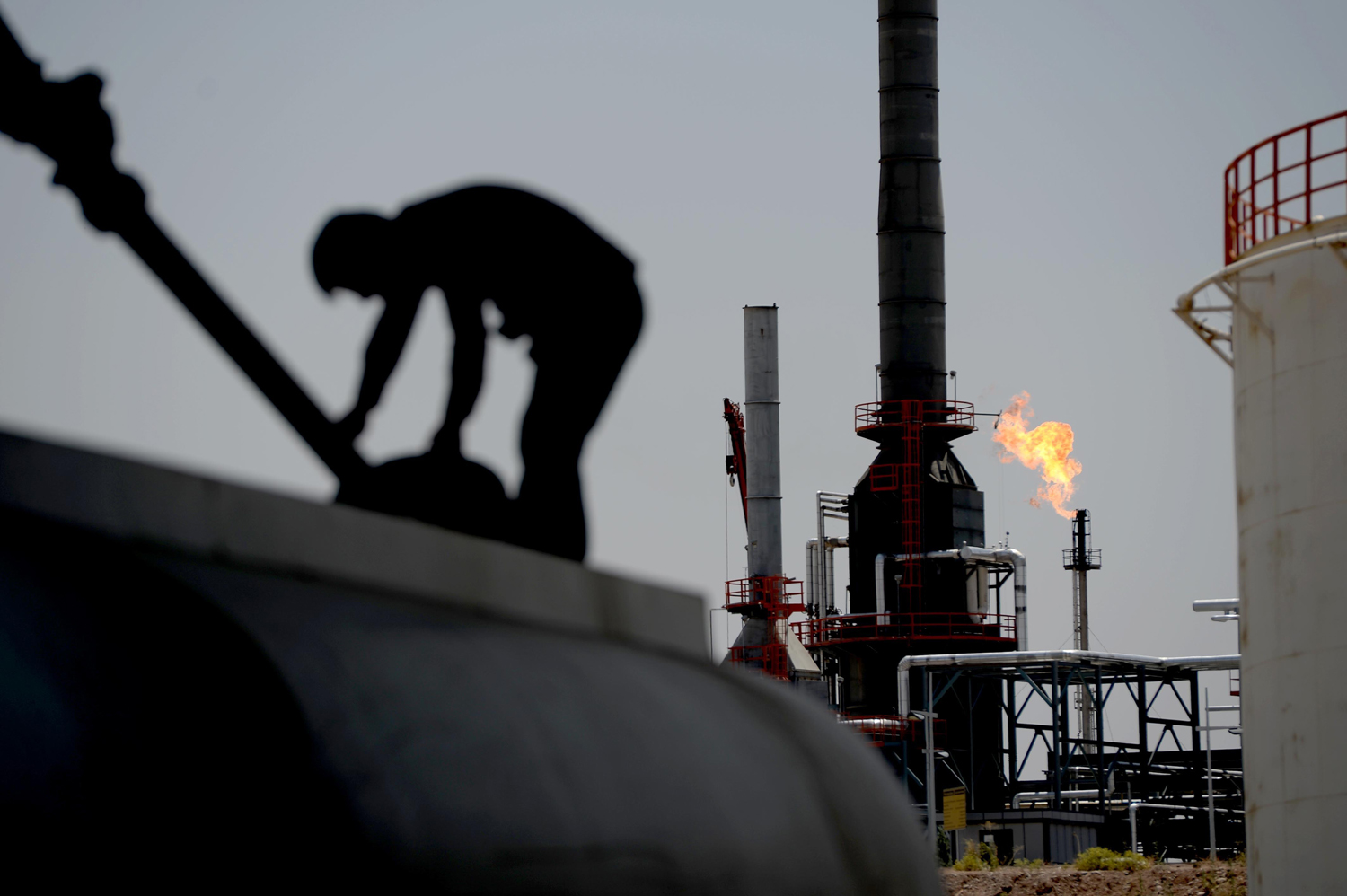
Originally appeared at OilPrice.com
What exactly is at stake in the battle for control of the Middle East, other than the obvious — the region’s abundant oil and natural gas? And why is it coming to a head now?
There are two aspects to what is currently transpiring in the Middle East: the battle for the region’s natural resources and the battle for the region’s human resources.
The region’s natural resource wealth has long been both a blessing and a curse. It has helped countries like the United Arab Emirates and Oman achieve amazing progress in a relatively short time and make the leap from societies that not long ago were comparable to medieval times into the 21st century.
But as one learns in the study of conflict resolution, change – any change – brings with it a certain amount of conflict. And the changes that oil and gas money brought to the Middle East were phenomenal. In turn, they upset more conservative elements of society who were unhappy to see the “natural order” of things – i.e., the old ways – disrupted and replaced with modern ways.
At the same time, the region’s resources have been a curse because it gave dictators like Iraq’s Saddam Hussein and Syria’s Bashar al-Assad the ability to squander billions of dollars on arms and weapons systems, to wage wars on its neighbors, and to threaten regional security. Syria, for example, with far less revenue from oil than Iraq, invested its modest revenues on increasing internal oppression rather than investing in the country’s future — its people.
Just how rewarding is it for Assad to look at his country today, utterly destroyed, more than 190,000 killed according to the United Nations, many more maimed both physically and psychologically, the infrastructure totally devastated? Yet he remains at the reins. He is now president of parcels of territory eroded by war.
Oil wealth has also allowed tiny counties, like Qatar, to assume an outsized role in the region and meddle in its neighbor’s politics, certain that its money can buy it anything, including influence. But what money cannot buy is critical thinking, which is what appears to be lacking most in the region.
Related: Oil Companies Turning Away From The Middle East
The second aspect of why the Middle East is going bonkers today is that the existing borders are based on Western colonial thinking. In many places, one country ends and another begins at a line in the sand drawn by a Frenchman and a Brit who divided up the spoils of the Ottoman Empire at the close of World War I.
This is why, for example, the Islamic State (IS) became so powerful in Syria and in Iraq — for them and the fighters who join them, there are no borders, no demarcation lines and no frontiers.
Why is IS so powerful, yet so little is known about who they are? From the little we know about them is that that the core of the officers corps comes from the remnants of Saddam Hussein’s army that went underground when the U.S. invaded in 2003.
Professor Amazia Baram, chair of Arab studies at Haifa University and an expert on Iraq under Hussein, explains that when the late dictator was still a lower echelon thug working for his cousin — who took power in a military coup – the family was overthrown but managed a comeback.
Once back in power, Saddam was given the task of setting up an underground system of operations from which the regime could recover in the event of a future coup. Saddam, according to Baram, excelled in securing back-up plans and in the process got rid of the top man and placed himself at the head of the state and party. Saddam never forgot the importance of maintaining the emergency fallback protocol and although he is now gone, his former generals have, by all appearances, taken over the network and placed it at the disposal of IS.
As the United States and its Western allies again get drawn into a Middle East war, this time it might be more constructive if they went in with something more than shock and awe.
Related: Does UAE Conscription Law Signal the End of the Dream?
Eliminating the IS threat militarily alone will not suffice. What is needed here is a viable “Marshall Plan” adapted for the Middle East where reforms are made in the education sector, where democratic principles are gradually introduced, and where the people are given voice in participating in the affairs of state and invited to join in governance, rather than being locked out of any decision making process.
As the map of the Middle East is being redrawn, so too must change be introduced into the very core of the region’s socio-political system.
Read more at OilPrice.com
Scotland’s Oil Will Remain in British Hands
More Must-Reads from TIME
- Why Trump’s Message Worked on Latino Men
- What Trump’s Win Could Mean for Housing
- The 100 Must-Read Books of 2024
- Sleep Doctors Share the 1 Tip That’s Changed Their Lives
- Column: Let’s Bring Back Romance
- What It’s Like to Have Long COVID As a Kid
- FX’s Say Nothing Is the Must-Watch Political Thriller of 2024
- Merle Bombardieri Is Helping People Make the Baby Decision
Contact us at letters@time.com